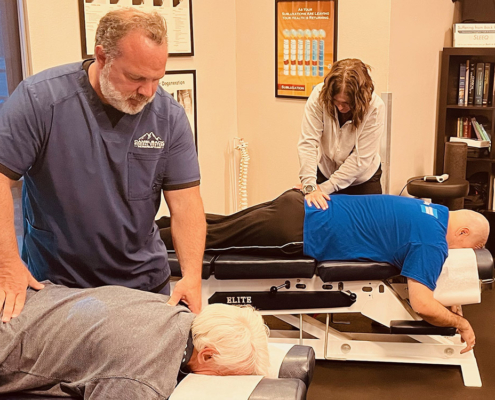Discovering the Benefits of Seeing a Knee Pain Specialist for Long-Term Relief
Dealing with knee pain can be debilitating and affect your daily activities and quality of life. Whether it's due to an injury, arthritis, or overuse, finding the right treatment and long-term relief is essential. While some people may try to manage knee pain on their own, seeking help from a knee pain specialist can make a significant difference in treating the root cause of the pain and providing lasting relief.
Understanding the Role of a Knee Pain Specialist
A knee pain specialist in Naperville is a medical professional who specializes in diagnosing and treating conditions related to the knee joint. These specialists have extensive knowledge and experience in dealing with various knee issues, including arthritis, ligament injuries, meniscus tears, and other structural problems. They can provide a comprehensive evaluation of your knee pain, determine the underlying cause, and recommend a personalized treatment plan to address your specific needs.
Benefits of Seeing a Knee Pain Specialist
- Accurate Diagnosis: Knee pain can have many possible causes, and an accurate diagnosis is crucial for effective treatment. A knee pain specialist has the expertise to perform a thorough evaluation, which may include imaging tests and diagnostic procedures to identify the source of your pain.
- Personalized Treatment Plan: Once the cause of your knee pain is determined, a knee pain specialist can develop a customized treatment plan tailored to your individual needs. This may include medication, physical therapy, injections, or surgical intervention, depending on the severity of your condition.
- Pain Management: Knee pain specialists are equipped to help manage your pain effectively. They can provide guidance on pain medications, assistive devices, and lifestyle modifications to alleviate discomfort and improve your quality of life.
- Preventive Care: In addition to treating existing knee problems, a knee pain specialist can also offer preventive care to reduce the risk of future injuries or complications. They can provide advice on proper exercises, footwear, and techniques to protect your knees from further damage.
- Expertise in Advanced Procedures: If conservative treatments are not successful, a knee pain specialist can offer expertise in advanced procedures, such as arthroscopic surgery or joint replacement, to address more complex knee issues and restore function.
When to See a Knee Pain Specialist
If you are experiencing persistent knee pain that limits your mobility or affects your daily activities, it may be time to see a knee pain specialist. Additionally, certain symptoms and signs indicate the need for specialized care:
Red Flags for Knee Pain
- Severe pain or swelling: If you have severe pain, swelling, or bruising in your knee that does not improve with rest or home remedies, it could indicate a more serious underlying condition that requires medical attention.
- Inability to bear weight: If you are unable to put weight on your knee or experience instability while walking, it may be a sign of a significant injury or structural problem that needs to be evaluated by a specialist.
- Persistent symptoms: If your knee pain persists for more than a few weeks despite conservative treatments or worsens over time, it's essential to seek the expertise of a knee pain specialist for a thorough evaluation.
- Restricted range of motion: Difficulty bending, straightening, or fully extending your knee can indicate joint damage or a mechanical issue that requires prompt medical attention to prevent further complications.
Choosing the Right Knee Pain Specialist
When selecting a knee pain specialist, it's essential to consider their qualifications, experience, and approach to patient care. Here are some factors to keep in mind:
Considerations for Choosing a Specialist
- Board certification: Look for a knee pain specialist who is board-certified in orthopedic surgery or sports medicine, as this indicates that they have met high standards of training and expertise in the field.
- Experience: Choose a specialist with significant experience in treating knee conditions similar to yours, as they will be better equipped to provide effective care and optimal outcomes.
- Communication and rapport: It's important to feel comfortable discussing your symptoms and concerns with your specialist. Choose a provider who listens attentively, explains treatment options clearly, and involves you in decision-making about your care.
- Collaborative approach: A good knee pain specialist works collaboratively with other healthcare providers, such as physical therapists, to ensure comprehensive and coordinated care for your knee pain.
By seeking help from a qualified knee pain specialist, you can receive the appropriate diagnosis, treatment, and support needed to alleviate your knee pain and improve your overall quality of life in the long term.


